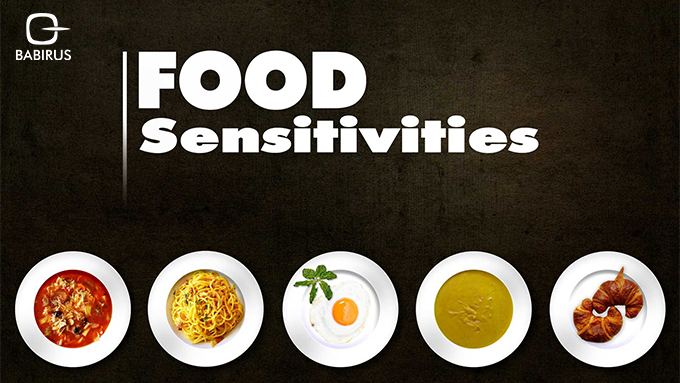IgE vs IgG Testing: Difference Between Food Allergy and Sensitivity

Food reactions are often confusing. Some happen in minutes with severe symptoms, while others build slowly over days, leaving you tired, bloated, or foggy-headed. The key to these differences lies in your immune system, specifically in two antibodies known as IgE and IgG.
Many people ask: “Do I have a food allergy or a food sensitivity? Which test should I get?” If you’ve wondered the same thing, you’re in the right place. Continue reading this blog if you’re confused between IgG and IgE, because we’ll cover what antibodies are, the distinct roles of IgE and IgG, how each connects to food reactions, and when the right test can give you answers. By the end, you’ll know how to tell whether your symptoms point toward a true allergy or a delayed sensitivity, and what that means for your health.
What Are Antibodies and Why Do They Matter?
Antibodies, or immunoglobulins, are proteins created by the immune system to defend against threats like bacteria, viruses, and toxins. Imagine them as your body’s surveillance system, each one trained to recognize a different type of intruder.
There are five major classes of antibodies:
- IgG (Immunoglobulin G): Provides long-term defense and immune memory. Plays a key role in delayed food sensitivities.
- IgE (Immunoglobulin E): Responsible for immediate allergic reactions, from hives to anaphylaxis.
- IgA (Immunoglobulin A): Guards mucosal areas like the gut and respiratory tract.
- IgM (Immunoglobulin M): The first antibody made when the body detects a new invader.
- IgD (Immunoglobulin D): Helps initiate immune responses but is less understood.
If you’ve ever wondered why some food reactions strike immediately while others take days to show up, the answer lies in two antibodies, IgE and IgG. They don’t act the same way, and that’s exactly why the test you pick can change the clarity you get.
IgE Antibodies and Food Allergies Explained
When people talk about food allergies, they’re almost always talking about IgE. These antibodies act like the body’s “emergency alarms.” As soon as you eat something you’re allergic to, IgE antibodies recognize it as a dangerous invader and trigger a rapid defense response.
How do IgE Reactions Work
- Speed: Symptoms appear within minutes to two hours.
- Mechanism: IgE activates mast cells, which release histamine and cause inflammation.
- Severity: Can range from itchy hives to life-threatening anaphylaxis.
Common Symptoms of IgE Food Allergies
- Hives, swelling, or rash
- Wheezing or difficulty breathing
- Abdominal cramps, nausea, vomiting
- Anaphylaxis in severe cases
Foods Often Linked to IgE Reactions
- Peanuts
- Tree nuts
- Shellfish
- Milk
- Eggs
- Wheat
How IgE Testing Confirms Food Allergies
When doctors suspect a food allergy, IgE testing is usually the next step. The most common methods are skin prick tests and blood tests, both of which measure how your immune system reacts to certain food proteins. These tests can confirm whether your symptoms are caused by an allergic reaction rather than something else.
In recent years, testing has become much more advanced. One example is molecular allergy testing, such as the MADx ALEX² panel, which doesn’t just look at whole food extracts but pinpoints the exact proteins that trigger a response. This level of detail helps identify whether a reaction is due to a true food allergy or a cross-reaction with something like pollen or latex. It also reduces the number of false positives that can happen with traditional tests.
IgG Antibodies and Food Sensitivities Explained
While IgE antibodies are behind classic food allergies, IgG antibodies tell a different story. Instead of triggering an immediate reaction, IgG responses can appear much later, sometimes hours or even days after you’ve eaten the food. These are not classified as true food allergies but rather food sensitivities or intolerances. They aren’t life-threatening, but they can cause frustrating, chronic symptoms that impact daily life.
How do IgG Reactions Work
- Onset: Symptoms may take up to 72 hours to appear.
- Mechanism: IgG antibodies act like “tags,” marking certain foods as familiar. In some people, this tagging process can contribute to ongoing inflammation.
- Severity: Not immediately dangerous, but can be chronic and wide-ranging.
Common Symptoms of IgG Food Sensitivities
- Digestive problems such as bloating, constipation, or diarrhea
- Migraines and recurring headaches
- Joint pain or stiffness
- Fatigue, brain fog, or difficulty focusing
- Skin issues like acne, eczema, or rashes
Foods Often Linked to IgG Reactions
Any food can be a trigger, but sensitivities are frequently seen with:
- Dairy products
- Gluten-containing grains
- Eggs
- Soy
- Processed foods
How IgG Testing Identifies Hidden Food Triggers
Because IgG symptoms are delayed, most people find it nearly impossible to identify patterns through diet tracking alone. That’s where IgG testing becomes valuable. A simple blood test can measure IgG antibodies against a broad range of foods, giving a clearer picture of what might be contributing to ongoing discomfort.
Tests like Foodprint® are designed to detect these delayed sensitivities and can be an important tool for people dealing with digestive issues, skin flare-ups, or unexplained fatigue. With results in hand, individuals can work with healthcare providers to design elimination diets or personalized nutrition plans that reduce symptoms and improve quality of life.
What is the difference between IgE and IgG food reactions?
The key difference between a food allergy vs food sensitivity comes down to timing and severity. IgE reactions are immediate and can be life-threatening, often causing hives, swelling, or even anaphylaxis within minutes of eating a trigger. IgG reactions are delayed, sometimes appearing hours or days later, and are linked to issues like bloating, fatigue, or headaches rather than sudden emergencies.
The table below breaks down the main distinctions between IgE and IgG.
| Feature | IgE (Food Allergy) | IgG (Food Sensitivity) |
| Reaction time | Minutes to 2 hours | Hours to 3 days |
| Severity | Potentially life-threatening | Chronic, quality-of-life impacting |
| Immune pathway | Histamine release from mast cells | Delayed immune memory response |
| Symptoms | Hives, swelling, wheezing, anaphylaxis | Digestive upset, migraines, fatigue, skin |
| Testing | Skin prick, blood IgE | Blood IgG |
Too often, people remove dozens of foods from their diet without ever getting real answers. The truth is, IgE allergies and IgG sensitivities don’t behave the same way, and the way you test for them isn’t the same either. Knowing which pathway is driving your symptoms helps you make smarter food choices, reduce trial-and-error, and work with your doctor on a plan that actually improves your daily life.
When to Choose IgE Testing
If your body reacts strongly and almost immediately after eating certain foods, it’s worth exploring IgE testing. These tests are designed to identify true food allergies that can pose serious risks. You might consider IgE testing if you:
- Develop sudden symptoms such as hives, swelling, or itching right after a meal.
- Struggle with breathing issues like wheezing or throat tightness when exposed to certain foods.
- Have experienced severe reactions in the past, including anaphylaxis.
- Suspect a classic allergy to well-known triggers such as peanuts, shellfish, or milk.
Confirming allergies with IgE testing ensures you know exactly which foods to avoid and allows you to take protective steps such as carrying an epinephrine auto-injector when needed.
When to Choose IgG Testing
Not every reaction happens right away. If your symptoms creep in slowly, seem unpredictable, or affect your daily comfort, IgG testing may provide the missing piece of the puzzle.
- Experience ongoing digestive issues such as bloating, diarrhea, or constipation.
- Live with recurring migraines or fatigue that don’t follow a clear pattern.
- Notice delayed reactions that appear hours or even days after eating.
- Want structured guidance for an elimination diet, instead of guessing which foods to cut out.
By mapping delayed immune responses, IgG testing helps uncover sensitivities that are easy to overlook, giving you a clearer path toward feeling better.
Can You Use Both IgE and IgG Testing?
Absolutely. For many people, combining IgE and IgG testing gives the clearest picture of how their body reacts to food.
- IgE testing pinpoints immediate allergies – the classic reactions that happen within minutes or hours and may even become dangerous if ignored.
- IgG testing highlights delayed sensitivities – the slow-burn responses that can lead to inflammation, digestive issues, or fatigue days after eating.
When both IgE and IgG testing are used side by side, they give you a much clearer picture of your body’s food responses. Instead of guessing what’s causing sudden allergic flares or ongoing digestive troubles, you get a practical map that shows both the immediate threats and the slower sensitivities. With that knowledge, healthcare providers can guide you toward a nutrition plan that feels less restrictive, more personalized, and focused on helping you feel your best every day.
FAQs About IgE and IgG Food Reactions
Food allergies and sensitivities naturally spark a lot of questions. From the science of antibodies to the practical side of testing, readers often want clarity they can trust. Below, we’ve pulled together some of the most frequently asked questions about IgE and IgG food reactions to help guide both patients and practitioners.
-
Can a food cause both IgE and IgG reactions?
Yes. While uncommon, some people may have both an immediate allergy and a delayed sensitivity to the same food.
-
Are IgG food sensitivities real?
Yes. IgG responses are part of the immune system’s memory and can contribute to inflammation and chronic symptoms. They are not “fake allergies” but a different type of immune response.
-
Can IgG sensitivities go away over time?
Yes. Many people find that after removing certain trigger foods for a period of time, they can reintroduce them later with fewer or no symptoms. IgG responses can change as your gut health and immune system adapt.
-
Do antihistamines help with IgG reactions?
Not typically, since IgG reactions don’t trigger histamine release.
-
Should I cut out every food that shows up on an IgG test?
Not necessarily. Work with a qualified healthcare provider to interpret results and decide which foods are most relevant to your symptoms.
Wrapping up,
Food reactions don’t all look the same, and that’s why the difference between IgE and IgG antibodies matters so much. IgE tests are important for uncovering immediate, high-risk food allergies, while IgG tests shine a light on delayed food sensitivities that may be fueling chronic symptoms.
When you have a clear idea of which type of reaction is at play, you can stop guessing, cut down on unnecessary food restrictions, and finally get a handle on what your body is trying to tell you. For some, the best approach is combining both IgE and IgG testing, a strategy that provides a complete picture and helps create a nutrition plan that’s safe, sustainable, and tailored to your needs. If you’ve been searching for reliable IgG and IgE testing, Babirus can help you get clear answers and take the next step toward better health.



